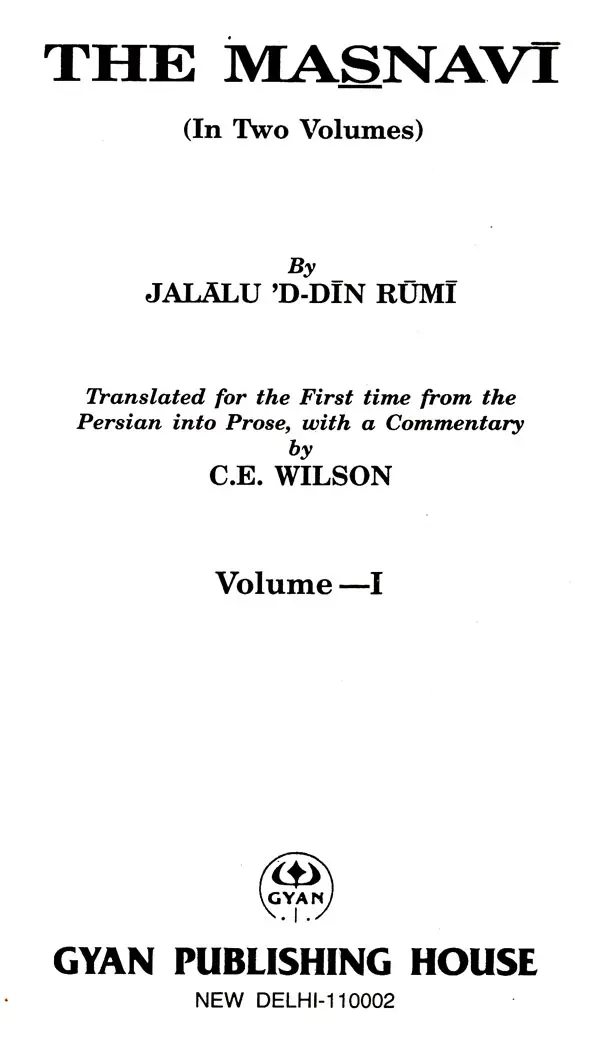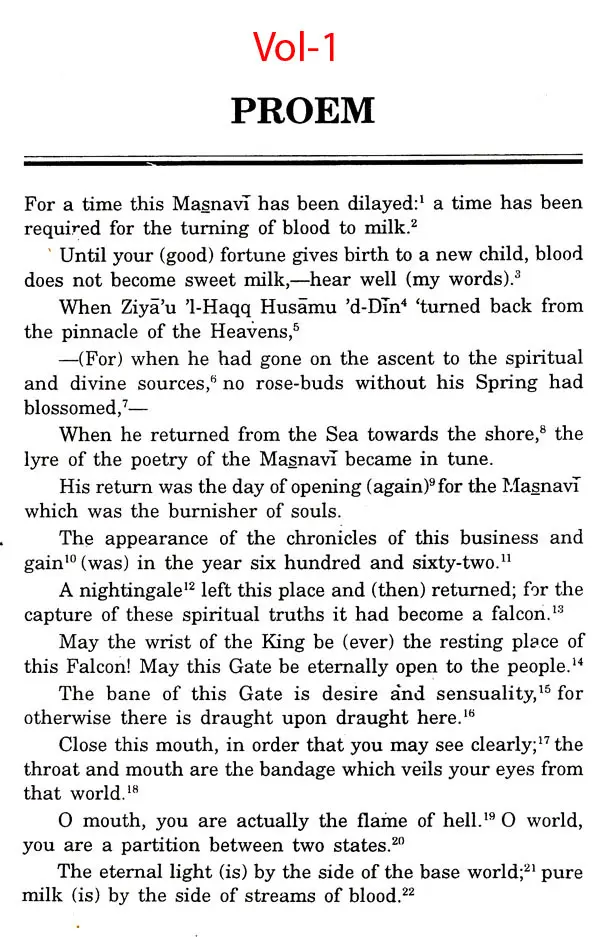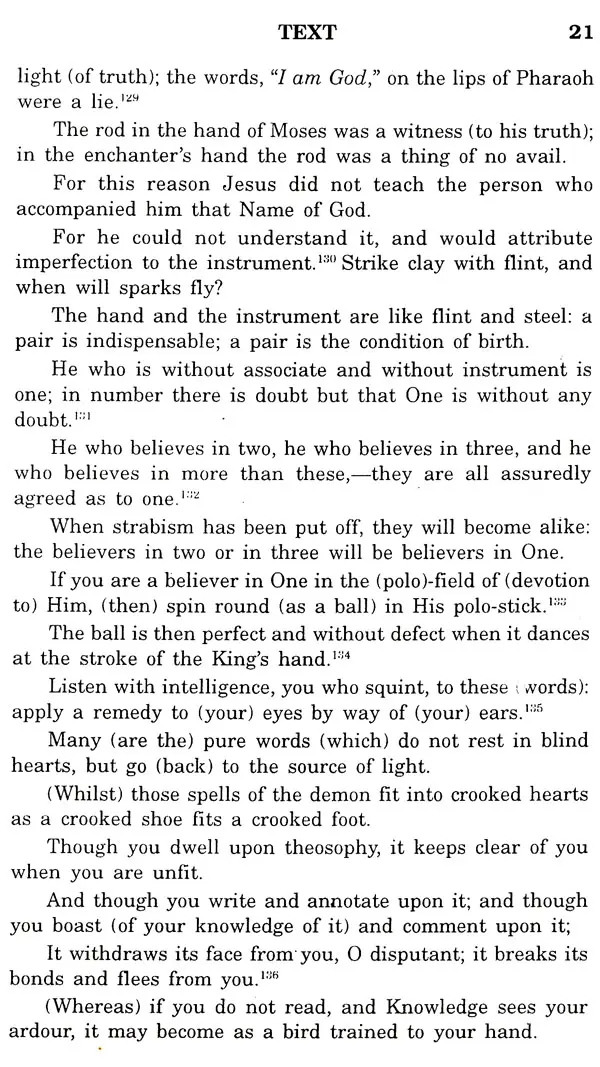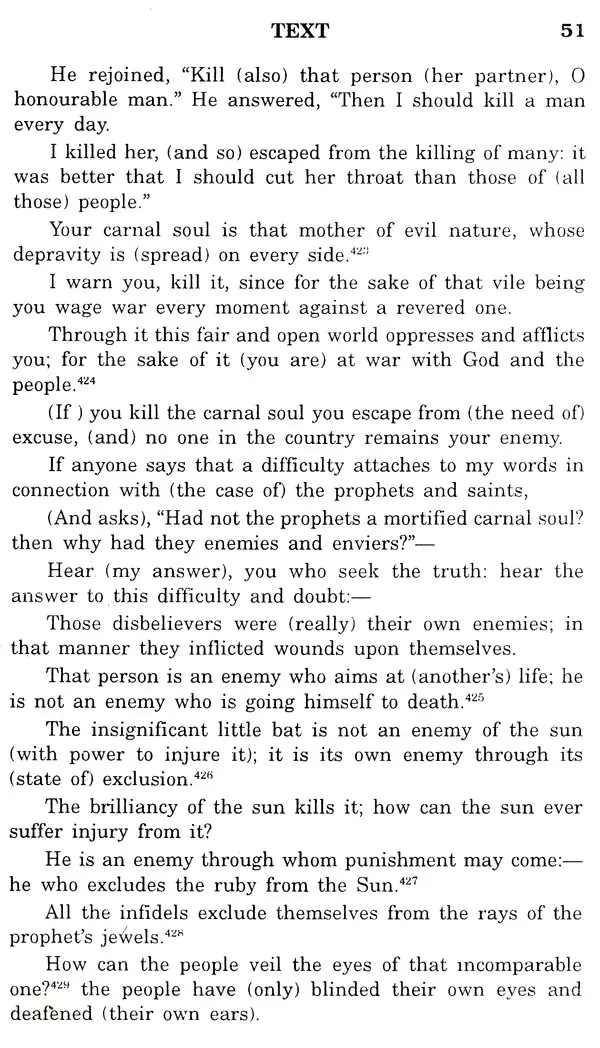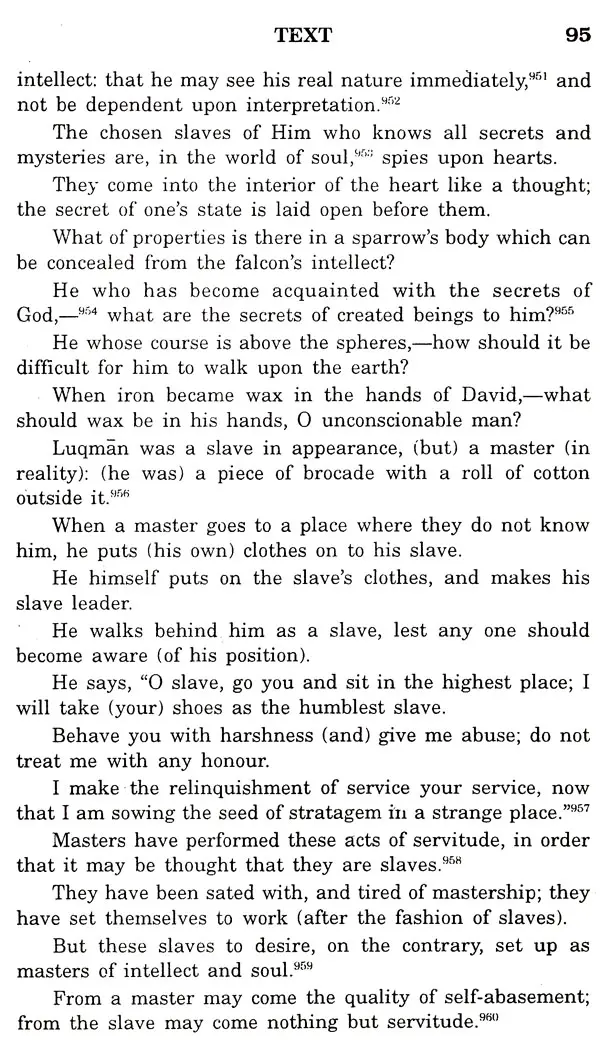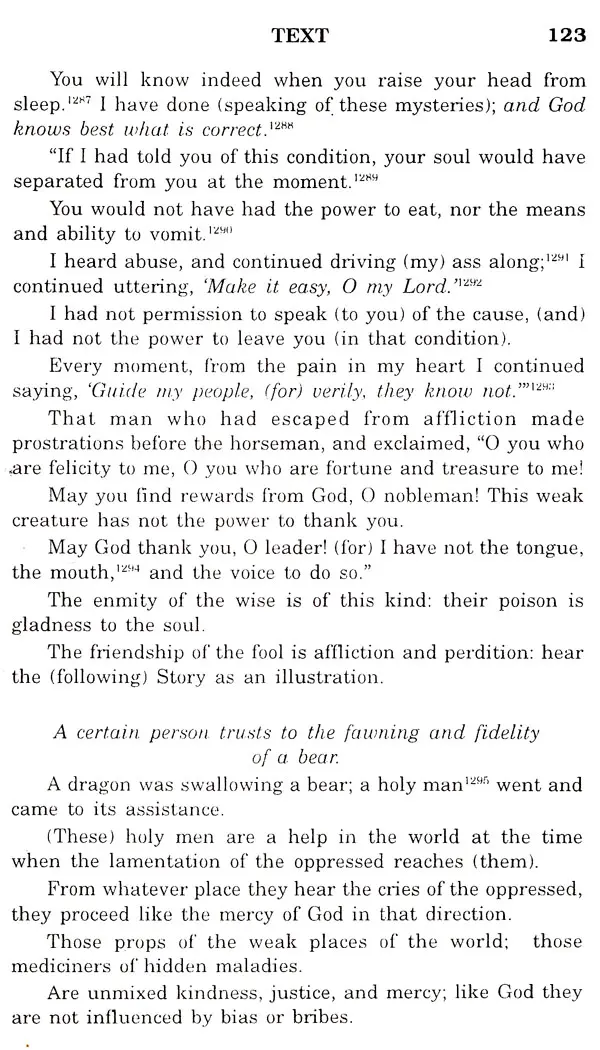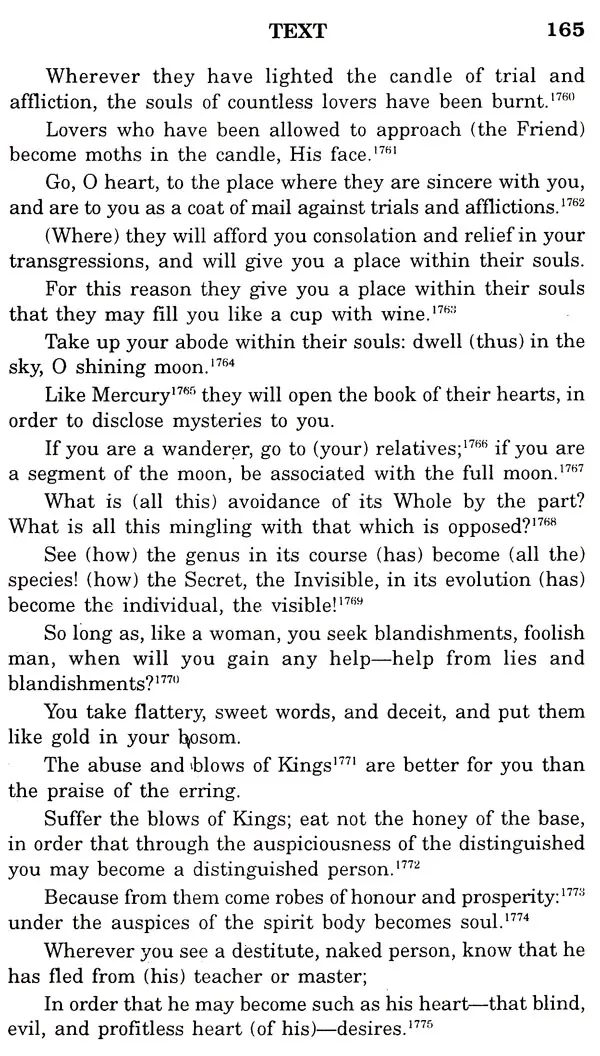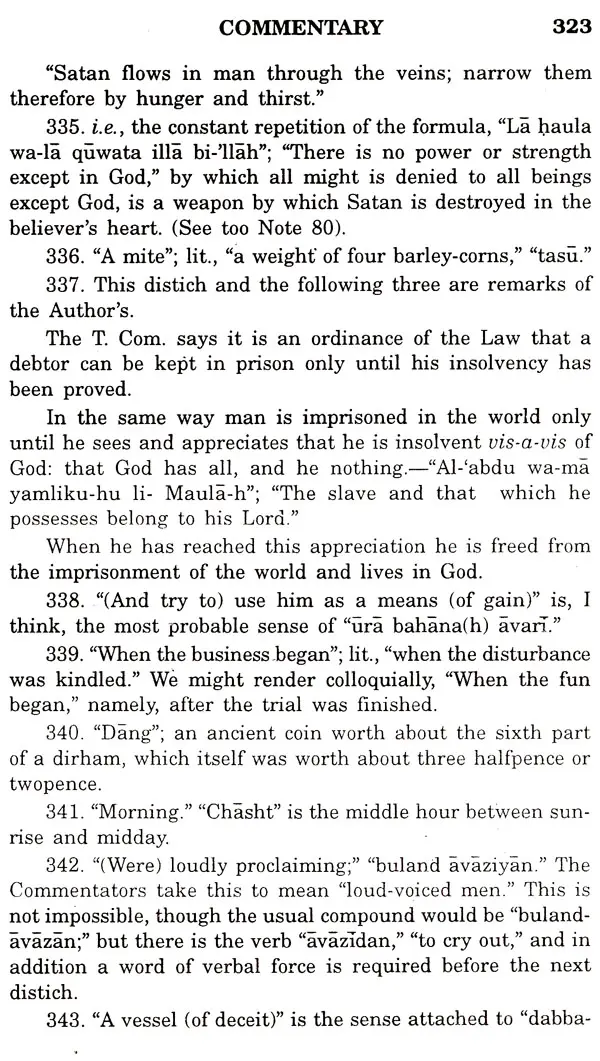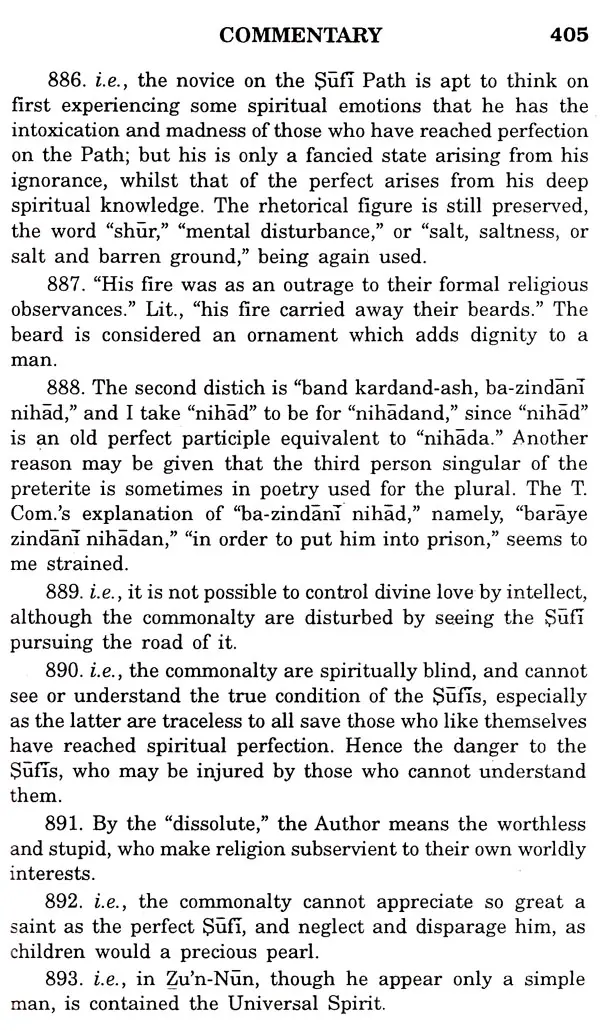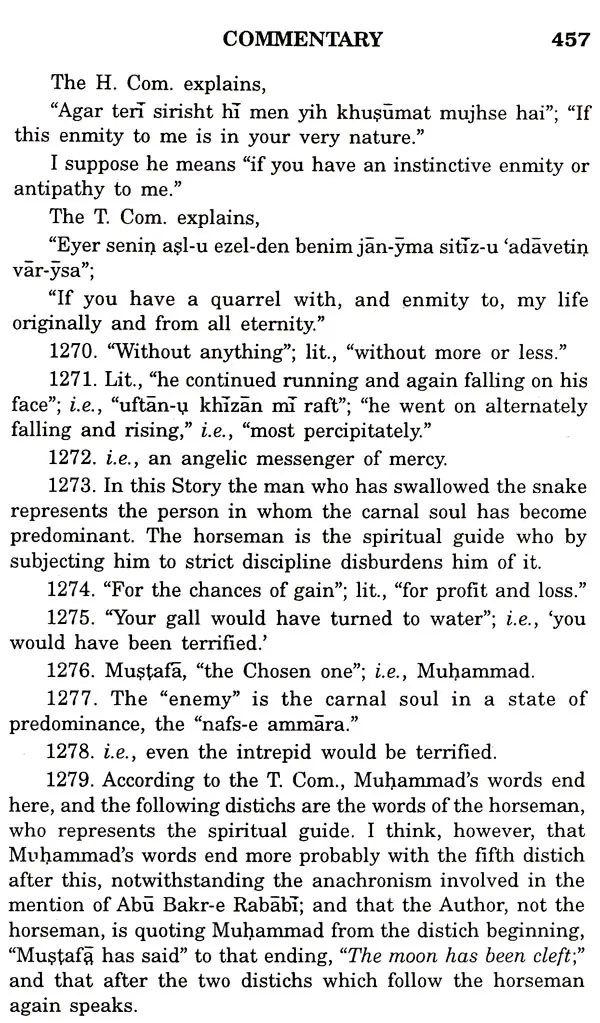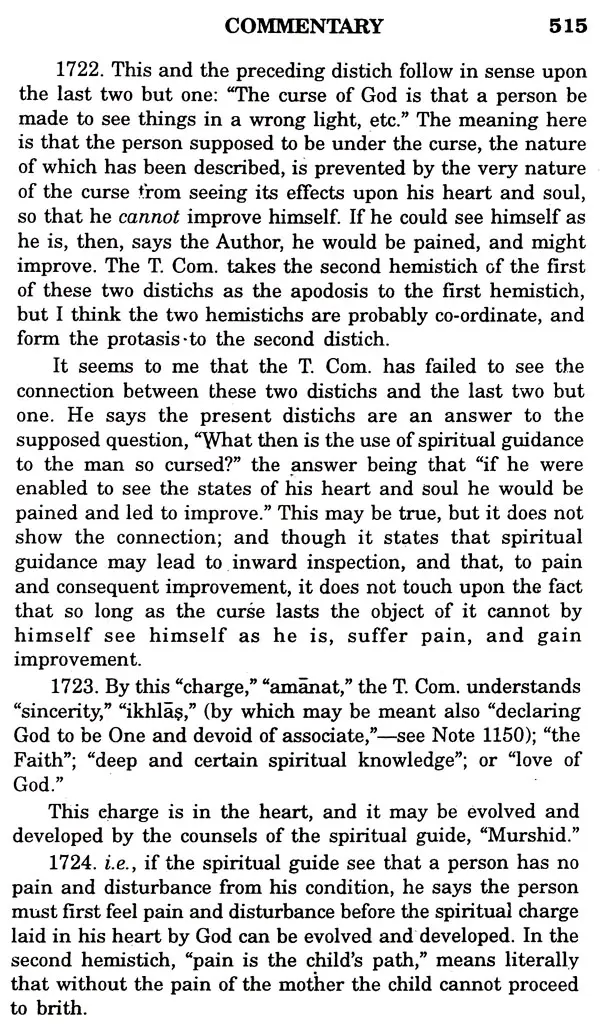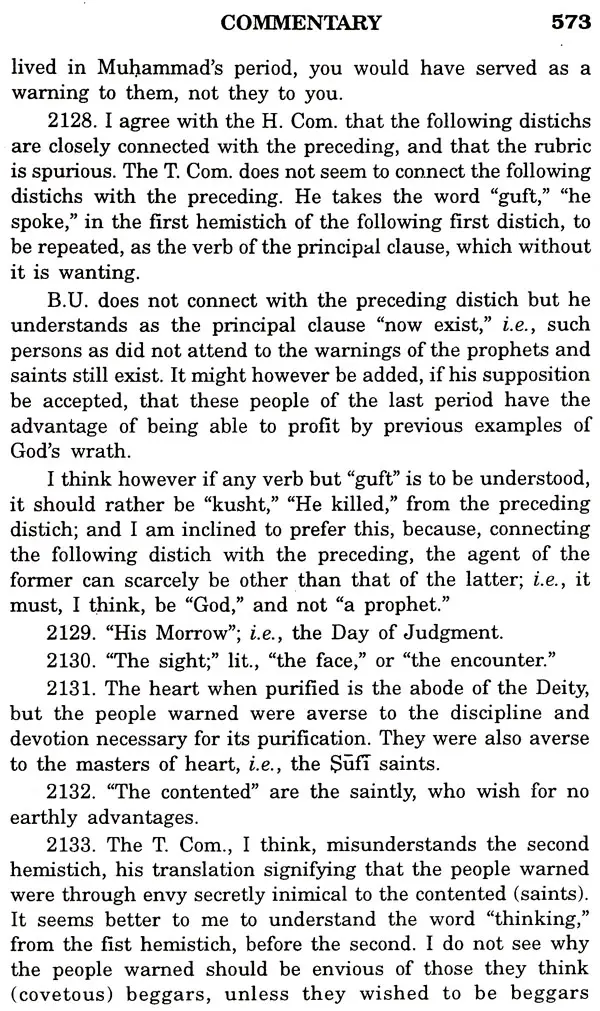
The Masnavi (Set of 2 Volumes)
Book Specification
| Item Code: | UAN795 |
| Author: | Jalalu D-Din Rumi & C.E. Wilson |
| Publisher: | Gyan Publishing House, New Delhi |
| Language: | English |
| Edition: | 2000 |
| ISBN: | 9788121207171 |
| Pages: | 642 |
| Cover: | HARDCOVER |
| Other Details | 8.80 X 5.80 inch |
| Weight | 1.09 kg |
Book Description
In 1881 Sir James Redhouse translated the First Book of this poem, but with the exception of that translation and of Mr Whinfield's abstract, nothing of importance in any European language has been attempted up to the present to further the knowledge of a work so valuable to all students not only of Sufism, but also of philosophy generally, including the modern development, Theosophy.
Sir James Redhouse's translation of the First Book, which is accessible to students, is sufficient excuse for my beginning my work with the Second. But the study of the First Book is by no means necessary for the comprehension of the Second, since the work is not a methodically ordered treatise on Sufism, but a series of expositions of the doctrines, each suggested to the Author by his antecedent exposition in the same Book. Each Book, in fact, contains a natural sequence of thought, but it is practically independent of the preceding Book. This is perhaps especially the case with the Second Book, which was not written till two years after the publication of the First.
It is not necessary to say much of the Author himself, since Sir James Redhouse has given an account of him and of the Sufis, his spiritual guides and successors. Of the work itself it may be said that the depth and beauty of its thoughts find fitting expression in the language in which they are conveyed, which is composed with consummate skill. Rumi's work has been considered the effect of inspiration. I leave it to those who may be qualified to speak of inspiration to consider how far this gift may be compatible with perfection of artistic construction, but of the Author's mastery of the latter there can be no doubt. Every fresh perusal seems to disclose some new proof of his marvellous skill in the use of words, many of which are selected with a view to additional senses, all applicable to the passage in which they occur.
So much, however, may be said, that the Author himself evidently recognizes the influence of a force which leads him to expression of which in a normal condition he would not have been capable. Cf. the passage, "In ki guftam ham na-bud juz bi-khvadi": "Even this which I have (already) said has been (from) nothing but my being carried out of myself." This scarcely refers to rhapsodical expression, which may or may not, perhaps, be a concomitant of inspiration. From rhapsody indeed the Masnavi is singularly free, whatever there be of that character in the "divan" or lyrical poems.
Setting aside the consideration of inspiration-there can be no question as to the Author's genius, but, as observed in his Preface, "Man lam yadhuq lam yadri" "He who has not tasted does not know"; and the genius of the Author can be thoroughly appreciated only by those who are sufficiently steeped in Persian poetry and the subject here treated to taste, as it were, the "zauq" of the work.-"Piran na-mi parand, magar muridan mi paranand"; "The spiritual guides do not fly (by their own efforts), but their disciples make them fly."
**Contents and Sample Pages**
